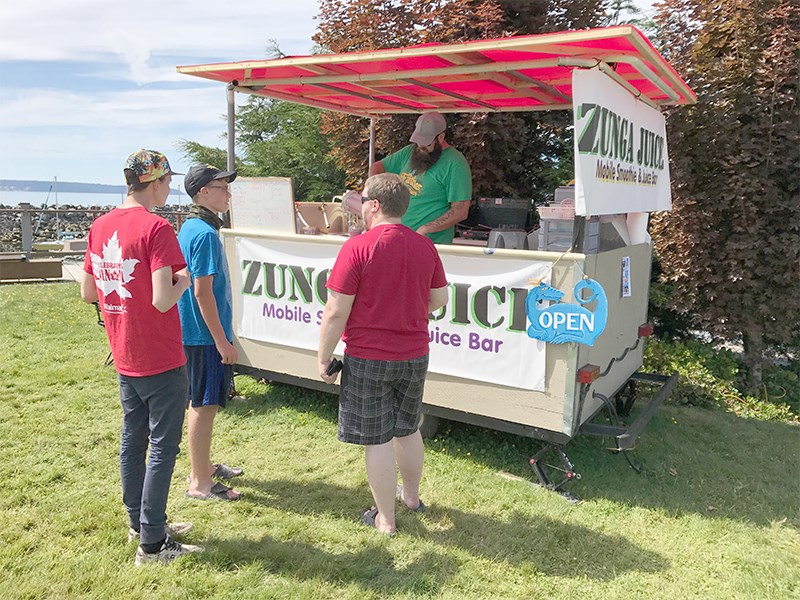City of Powell River council wants a more vibrant, tourist-friendly Marine Avenue that includes street food during the summer, and councillors have asked city staff to look at ways to make that happen.
Council’s committee of the whole agreed unanimously at its meeting on Tuesday, June 13, to direct city staff to review how street vendors operating on city property are charged.
City staff will also be asked to work on creating a summer pilot project that encourages vendors to set up at the old barge terminal next to the south harbour.
Councillor CaroleAnn Leishman told committee members that the city may be charging too much and overly restrictive compared to other communities.
“We should open it up to make it more accessible for vendors to go in places were people go, and lower our rates,” Leishman said at the meeting. “That’s why there aren’t a lot of food vendors.”
Powell River food-cart owner and operator Robbie Holmgren said he thinks rates are too high for what is being offered. He acknowledged that street vendors have lower overhead than traditional brick-and-mortar businesses, but spaces the city provides do not include access to services such as electricity or water.
“If they’re going to charge that much money, they should offer something,” said Holmgren, “not just the privilege to have a food cart.”
Food carts are only permitted at select locations on city property: near the Wharf at Westview, at the north harbour, in the vacant lot at Marine Avenue and Alberni Street, at Willingdon South and at Mowat Bay.
Holmgren said he thinks encouraging more food vendors will bring more people out onto the streets in the evenings and help develop tourism.
Vendors are charged $600 per year or $200 per month and are also required to purchase a city business licence. If the vendor serves food they also need a permit from Vancouver Coastal Health that indicates FoodSafe certification.
“It’s a lot of cost being a mobile vendor,” stated Leishman at the meeting. She added that a per-day or per-week fee may be less expensive and provide more flexibility for vendors.
Mayor Dave Formosa told the committee he thought it would be a good idea to have staff look at what Powell River charges and compare it to other similar-sized communities. He told the committee he wanted to be careful about opening up the restriction too much.
Restaurant owners would not be very happy to see a food cart open on the street outside of their business, stated Formosa.
“We want to be careful,” said Formosa. “I know what commercial owners pay in taxes.”
Councillor Jim Palm said that while he is not willing to put city staff through the exercise of revisiting and writing a report on an issue that was last dealt with in 2013, he did agree that having staff compare rates to other communities could be helpful.
Over the past couple of months the city planning department has engaged the community on future redevelopment of the old barge terminal location. Staff has gathered more than 500 responses from residents though various pop-up consultations.
Leishman attended some of the sessions and said she heard repeated calls for food vendors at the site so people using the seawalk or boaters coming ashore from the harbour can grab a coffee or snack.
City director of planning Thomas Knight told the committee the area is already zoned to allow food vending and that his department supports the development of a pilot project this summer.
Formosa said he was in support of the idea and thought it would be appropriate to run the project without charging vendors to operate at the proposed location.



